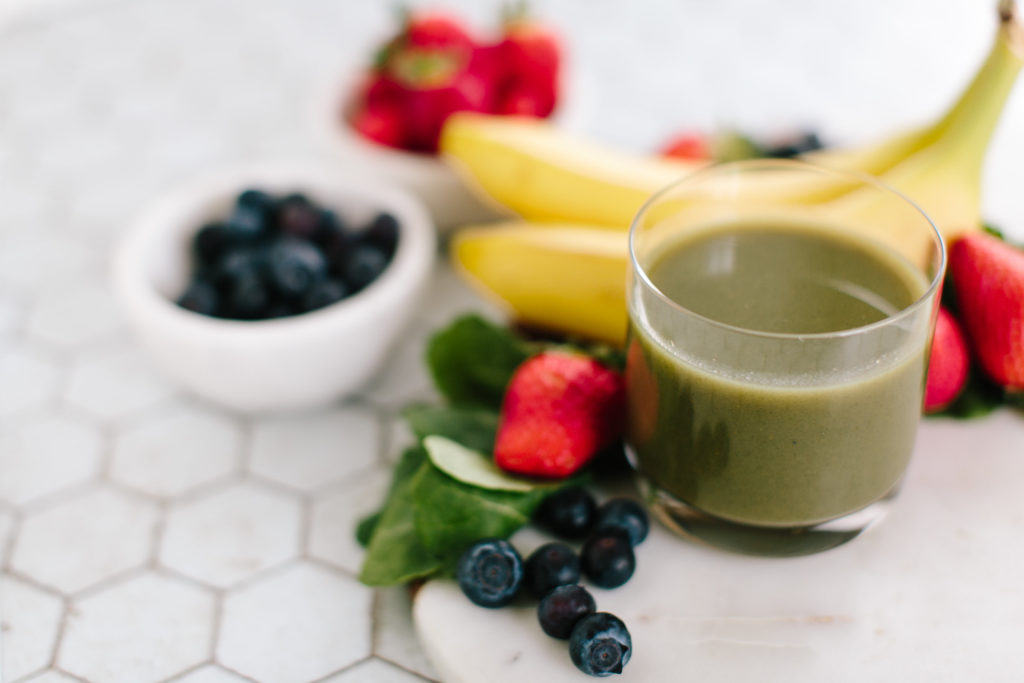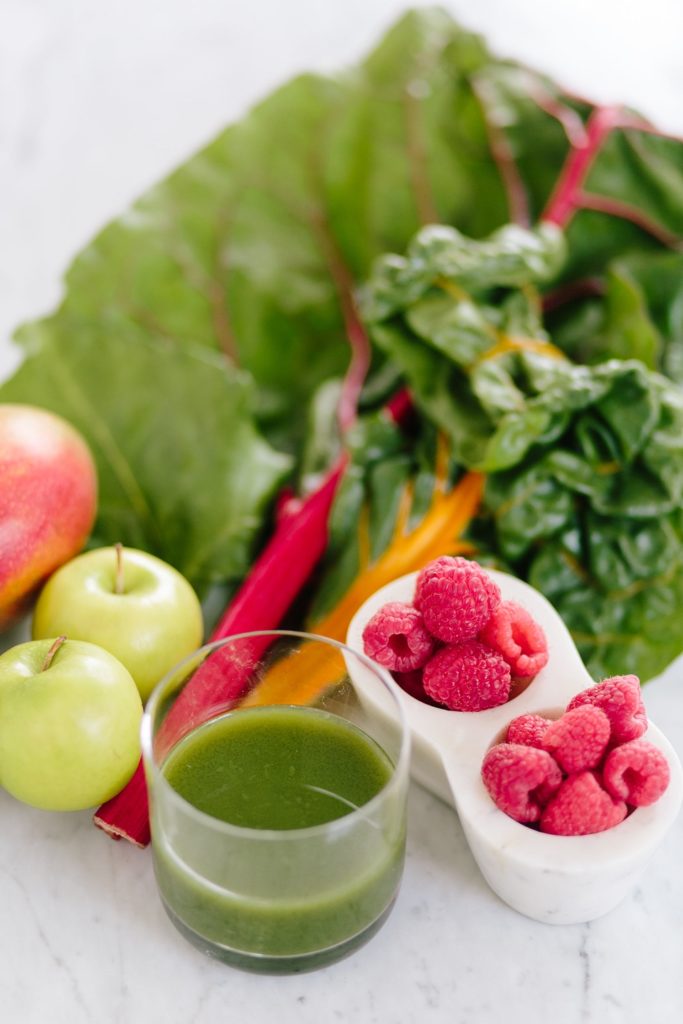Veganism & raw food diets are very on trend at the moment, so chances are that you might also be wondering if you should start juicing (again) in an effort to increase your fresh food intake.

In the past, raw juice fasts or diets have received credit for extreme weight loss (especially amongst celebrities) & even for curing serious illnesses. If you are wondering if it is truth or fiction, you’ve come to the right place because I’m about to give you some advice from experts & also some tips from our own juicing experience.
Should you be juicing for weight loss or detoxing?
“Juicing detox (low calorie) diets are not proven to be effective & may do more damage than good,” explains Catherine Day, a registered dietician from Cape Town. “If juicing is used as a part of a healthy eating plan it can be of benefit due to the higher intake of micronutrients & phytonutrients (vitamins & minerals) but only if your previous diet or eating plan was low in fruits & vegetables. You don’t need to juice to receive an adequate amount of micronutrients.”
“Detox juicing diets are not necessarily a healthy and sustainable way to lose weight, especially if the calories per day are too low (<1000 kCal).” The weight will also not stay off as most of it would be in the form of water & muscle mass loss. And when you lose muscle mass, you also do damage to your metabolism, explains Catherine.
She believes that promoting juicing diets as a way to detox is simply a marketing ploy: “The body has its own detoxification systems… Your liver, kidneys & the lymphatic systems are the body’s detoxification systems & it can handle most potentially toxic substances.”
Juicing for a healthier you
Adding a raw juice to your daily intake can help achieve optimal health in terms of getting all the nutrients your body needs. It is not a cure for medical conditions, but can assist your body to recover explains Dr Nancy Lord, George-based homeopath, who has been juicing daily since 2004. “It started with chronic bowel problems. I had tried all forms of treatment & felt the need for a boost of vitamins, enzymes & nutrients.” Her immune system was severely compromised.
We had a similar experience with the benefits of juicing when Ernie has severe ulcers & health issues in 2008. After trying out many things, we found that daily vegetables juices (combined with a really clean diet) made a huge difference to our bodies acidity. My skin also became so much clearer & my cravings for unhealthy foods went away.
“When I started juicing, I went through a major detox, after that I started feeling much healthier! Juicing helped decrease inflammation in my body. It boosted my immune system, increased my energy levels & helped to balance my digestive system. It also made my bowel movements more regular,” says Dr Lord, who strongly recommends juicing vegetables as an add-on to a healthy eating plan to her patients.
Here are 3 fab juices to try:
Your Daily Dose of Vitality
1 Apple
1 or 2 Large carrots
1 Beetroot
A handful of spinach
1 Celery stalk
1cm Fresh ginger root
1 Small radish
Small handful of parsley
Small handful of mint
Optional: lemon with peel, cabbage, broccoli
(Source: Dr Nancy Lord)
For Glowing Skin
1 Beetroot
2 Oranges
2 Red Apples
1 Cucumber
1 Stick of Celery
Juice & sip your way to a glowing complexion.
(Source: simplyveganblog.com)
For Colds & Flu
1 Banana (peeled and chopped)
1 Cup of kale
1 Cup of chopped pineapple
½ Cup of water
1 Cup of almond milk
Blend until smooth and frothy & enjoy!
(Source: marthastewart.com/eatclean)

9 Top Juicing Tips
- Wash all fruit & veggies before juicing.
- Start with veggies & fruits that you like & introduce the potent ones (celery, cabbage, ginger, spinach, radish) as you get used to the idea of sipping your veggies. Always use ginger & cabbage sparingly, as these tend to ‘burn’ in juices.
- Veg over fruit. There are no rules in terms of what you can add to your juice. Fruit will certainly make it taste much better, but Dr Lord recommends juicing as many green vegetables as possible. “Try not to juice fruit as it has a high sugar content & has less nutrients than vegetables,” she says.
- Add flavour with cinnamon, ginger & mint.
- You might get a head rush or feel slightly nauseous for a moment the first few times that you drink fresh juice. This is a good thing & will soon pass. You will eventually start craving the juice if you do it regularly.
- Strain, add ice & sip through a straw to make a potent veggie juice easier to drink.
- Drink your juice straight after making or store in the fridge in an air tight container (for 24 to 48 hours). If you leave it, it will lose lots of the freshly squeezes goodness.
- Include fibre in your diet. A big concern with vegetable juices is that the juicing process eliminates most of the fibre, which causes your blood sugar to spike. Remember to still eat up on those foods that are good for your digestive system.
- Remember that juicing is not for everyone. Those with chronic medical conditions should first check in with a medical professional before starting a juicing regime – especially diabetics and those prone to kidney stones.
Happy juicing friends.
Yolandi ♥
Ps. Have you tried my Carrot & Orange juice recipe?
Images: Jasmine Star
Contacts: Dr Nancy Lord, Homeopath, 044 8740025
Catherine Day, Dietician, catherineday.co.za

1 Comment on A Quick Guide to Vegetable Juices